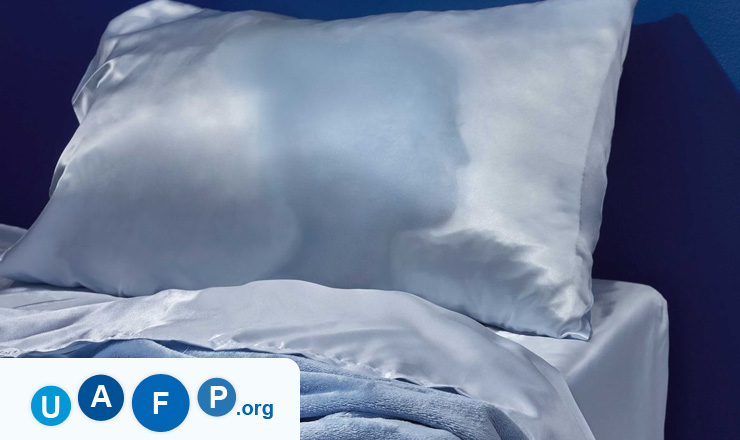Antipyretics & Antidepressants- Major causes of Night Sweats

Individuals some of the time go overboard when they begin encountering night sweats since they fear this manifestation might be a reason for a concerning wellbeing condition. You might be assuaged to hear that in case you're sweating while at the same time dozing, you'll regularly discover a genuinely guiltless clarification. Sweating while snoozing is normal, in actuality it is a standout amongst the most widely recognized issues patients convey to their specialists.
What causes night sweats?
Night sweats can be triggered by various factors, including:
- Infections like tuberculosis, HIV/AIDS, or endocarditis
- Hormonal changes during menopause in women or hormonal disorders
- Certain medications, such as antidepressants, hormone therapies, or fever-reducing drugs
- Anxiety, stress, or intense nightmares
- Neurological conditions like autonomic dysreflexia
- Some cancers, particularly lymphoma
How can night sweats be managed?
Managing night sweats involves addressing the underlying cause:
- For menopausal or hormonal night sweats, hormone replacement therapy or other medications might be recommended.
- Infections or illnesses causing night sweats may require specific treatments targeting the underlying condition.
- Lifestyle adjustments like keeping your bedroom cool, using moisture-wicking sleepwear, and avoiding triggers like spicy foods or caffeine before bedtime might help alleviate night sweats.
In this article we will discuss about two basic sorts of prescriptions that are known to bring about night sweating. They are antidepressants and antipyretics. The antidepressants known to be reasons for this awkward reaction are all professionally prescribed medicines however the antipyretics are regular over-the-counter medications that you may not speculate.
Antidepressants
Antidepressants are psychiatric pharmaceuticals utilized to address significant state of mind issues and tension issue like dysthymia, misery and over the top enthusiastic issue. They are disputable both in that the distinctive sorts of antidepressants face hardened rivalry from each other and that the examination and studies supporting their utilization appears to move drastically from year to year.
The sorts of antidepressants most connected with rest hyperhidrosis are serotonin-norepinephrine reuptake inhibitors, specific serotonin reuptake inhibitors and monoamine oxidase inhibitors. Check with your specialist or your drug specialist to check whether your energizer is one of these normally recommended drugs. Provided that this is true, that may clarify your problematic night sweats.
How long does it take for antidepressants to work?
The time it takes for antidepressants to start working can vary from person to person. Typically, it can take several weeks to a few months before the full therapeutic effects are felt. However, some individuals may experience improvement in symptoms within a few weeks, while others may take longer.
Are there any side effects of antidepressants?
Common side effects of antidepressants can include nausea, insomnia or drowsiness, weight changes, sexual dysfunction, dry mouth, dizziness, and constipation. Side effects vary depending on the specific type of antidepressant and the individual's response to the medication.
Can antidepressants be addictive?
Antidepressants are not considered addictive in the same way as substances like opioids or benzodiazepines. However, sudden discontinuation or abrupt withdrawal from certain antidepressants can cause discontinuation symptoms or withdrawal effects. It's important to taper off these medications gradually under medical supervision.
Antipyretics
The following sort of medicine that may bring about night sweats is considerably more typical: Antipyretics. You basically know them as agony relievers. Headache medicine (Bayer, Excedrin), ibuprofen (Advil) and acetaminophen (Tylenol) are all antipyretics. These over-the-counter drugs are fever-reducers.
Antipyretics influence your hypothalamus, which is the piece of your mind that goes about as an indoor regulator for your body. At the point when these prescriptions advise your hypothalamus to bring down your body temperature, it triggers a few characteristic systems that your body uses to decrease your temperature. Among those systems is sweat. So it isn't extraordinary to experience some level of sweat inside 30 minutes of taking an antipyretic medicine, particularly on the off chance that you experience the ill effects of a fever.
Since antipyretics are so normal and individuals experiencing state of mind issue regularly see torment all the more effectively, it wouldn't astonish on the off chance that you were taking both a stimulant and an antipyretic. For this situation, it wouldn't amaze at all on the off chance that you were experiencing sweating around evening time.
What are the common types of antipyretics?
Common antipyretic medications include acetaminophen (Paracetamol), Ibuprofen, Aspirin (not recommended for children due to the risk of Reye's syndrome), and Naproxen. These drugs are available over-the-counter and in prescription strengths.
Can antipyretics cure the underlying cause of fever?
Antipyretics only help to reduce fever and alleviate associated symptoms but do not treat the underlying cause of the fever itself. Fever is often the body's natural response to an infection or illness, and treating the cause of the fever may require specific medical treatment or interventions.
Are there any side effects of antipyretics?
Common side effects of antipyretics can include nausea, upset stomach, allergic reactions, and in some cases, liver or kidney problems with prolonged or excessive use. Always consult a healthcare professional if you experience any unusual symptoms or side effects.
It's imperative to decide whether either of these drugs might bring about your sweating and disturbing your rest during the evening. An absence of rest can abandon you more vulnerable to sickness; however it can likewise influence your inclination. Counsel with your doctor on the off chance that you have any worries as he or she might have the capacity to endorse another pharmaceutical that won't have this awkward reaction.




